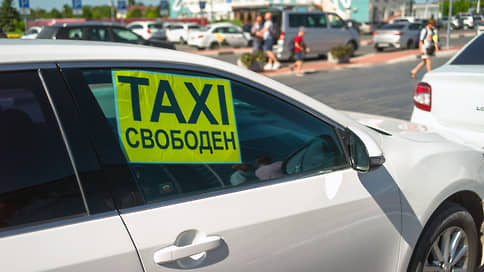Taxi drivers want to participate in the development of requirements for car localization

The adopted law on the localization of cars involved in passenger transportation again raised questions from the industry. The Public Council for the Development of Taxi proposes to create a working group with automakers to discuss the requirements for such machines. It is not yet clear which transport can be allowed to passenger passenger transportation, market participants insist.
At the disposal of Kommersant was a letter to the chairman of the Public Council for the development of a taxi Irina Zaripova to the President of the Russian Union of Industrialists and Entrepreneurs (RSPP) Alexander Shokhin, sent on May 30. The author of the appeal asks to create a working group on the localization of machines used in a taxi on the RSPP site and include representatives of carriers, automakers, federal and regional authorities in the part of representatives of carriers. In the RSP, they did not respond to the request “Kommersant”.
In May, the State Duma in the second and third readings adopted a law on the establishment of requirements for the level of localization of cars involved in a taxi (See “Kommersant” from May 14). Later, the Federation Council approved this document. From March 1, 2026, to include a car in the taxi register, the number of localization points should correspond to the norm set for public procurement (now 3200 points), or the car must be made as part of the special west contract (SPIC), concluded from March 1, 2022 to March 1, 2025. It is also possible to admit a car released on a later SPIC, but this will require a government solution. Since 2033, the only condition for inclusion in the register will be the number of localization points.
Anton Alikhanovthe head of the Ministry of Industry and Trade, in May 2025:
“This (localization of a car for taxi. -“ Kommersant ”) a logical approach for part of the market that is actively growing.”
But the taxi industry is not ready for innovations. In a letter to the RSPP, Irina Zaripova notes that massive appeals of taxi pages and carriers, who have no explanations of how to prepare for March 1, 2026, come to the Public Council for the development of a taxi. Without this, the work of the whole segment of the transport industry for the transportation of passengers will be disrupted, Mrs. Zaripova fears.
The advisory and coordination body is needed for the dialogue of taxi carriers with automakers, they confirm in the service of the Maxim taxi order. They, like officials, are poorly imagined by the structure and needs of the market for passenger transportation, added to the company. The AvtoVAZ was informed “Kommersant” that taxiopark and individual taxi drivers are their important customers and they are open to the dialogue in constructive format.
A similar situation is formed in relations with the regions. As practice shows, the regions have never been and will not be ready to fully implement all federal requirements, says Stanislav Schwagerus, head of the Center for competencies of the International Eurasian Forum. As a rule, it takes up to five years to study them in accordance with the features of a particular region, he says.
Taxi market participants are not clear the main point: which cars will be allowed to work in the industry, said Natalia Lozinskaya, Executive Director of the National Taxi Association.
Now the Localization Law contains an exclusively ban on the use of specific cars in a taxi, and there are no requirements for localized cars, except for the total number of localization points, says Stanislav Schwagerus. This criterion refers to automakers and absolutely does not take into account the features of a taxi car, he adds.
Carriers hope that all the cars produced in Russia are included in the list of car taxis, Natalia Lozinskaya will include. It is this list that will become a determining factor for planning to update the fleet and evaluate real risks for business, she adds. According to an estimated representative of the Maxim taxi, approximately 1 million cars in the economy and comfort segments fall under localization.
A significant part of the taxi cars in regional registers belongs to self -employed carriers, according to which the norm of localization will hit the most, warns the head of the unification of self -employed Russia Ivan Litvinov. Unlike taxiways, they do not have the means to replace the car, financial instruments for this, in addition to the usual car loan at a commercial rate for individuals, there are no subsidies and preferential programs, he adds.








